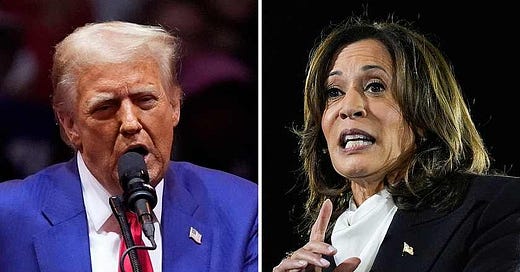Analysis: U.S.-China Strategic Rivalry Set to Intensify Regardless of Who Wins White House
Vice President Kamala Harris is expected to toe the Biden administration’s line, while former President Donald Trump has promised to ice out China with a barrage of new hurdles
(Left) Republican presidential candidate former President Donald Trump speaks during a campaign rally at Madison Square Garden in New York on Oct. 27. (Right) Democratic presidential candidate Kamala Harris speaks at a campaign event on the Ellipse near the White House in Washington Oct. 29. Photo: VCG
A bipartisan consensus has taken shape in Washington: whoever moves into the White House in January ― whether it’s Vice President Kamala Harris or former President Donald Trump ― the strategic rivalry between the U.S. and China is set to intensify and endure.
In his public remarks this year, Trump has exhibited an even more combative stance toward China than he did during his previous term. His rhetoric on China has become markedly more aggressive and laden with his signature hyperbolic flair.
In February, Trump vowed to “completely eliminate [U.S.] dependence on China in all critical areas” in a campaign video. His vision includes raising tariffs on Chinese goods to 60%, stripping China of its most-favored-nation trade status, tightening export controls on critical U.S. technologies, and restricting Chinese investment across a wide range of sectors. Visa restrictions for Chinese nationals, particularly in academia and business, would also be ramped up. If these policies materialize, it could lead to intense and widespread friction between the two nations in the semiconductor, biotechnology and financial sectors.
【Subscribe now to get more Sino-US relation insights from Caixin】
40% OFF Now
Keep reading with a 7-day free trial
Subscribe to Caixin Global China Watch to keep reading this post and get 7 days of free access to the full post archives.




